Letter from South Africa - How Johannesburg's Market Theatre overcame the pandemic with a fighting spirit
Where future curation is headed
by Percy Zvomuya
July 1, 2021. On 21 June 1976, only days after apartheid police killed defenseless school children engaged in demonstrations, the Market Theatre opened its doors. The protest, whose epicenter was Soweto, the black ghetto near Johannesburg, was triggered by the racist Nationalist government’s imposition of the Afrikaans language on their school curriculum. The official death toll is 176 pupils, although some estimates suggest that up to 700 students could have been murdered.
It is this bloody episode, part of a painful colonial history which James Ngcobo – the Market Theatre’s artistic director, an award-winning actor himself on both television and the stage, and theatre director from the southeastern coastal city of Durban – was gesturing to when he said the Market Theatre’s origins were steeped in conflict. “The Market Theatre was opened in 1976, when one of the [most] shocking things happened in the world, when young people were mowed down by cops in Soweto. The beginnings of the Market were never easy,” he told his colleagues when he wanted to rally them. His staff were “forlorn figures” following the March 2020 restrictions imposed on the theatre, and the rest of the country, by South Africa’s president, Cyril Ramaphosa, to contain the spread of Covid 19.
Developing theatre aimed at online audiences
The Market Theatre, which Ngcobo has been running as its artistic director – the first black to ever hold the position – since August 2013, was co-founded by Barney Simon and Mannie Manim; the space is located in what used to be a fruit and vegetable market in Newtown, in Johannesburg’s Central Business District, and boasts an anti-racist tradition in a country in which apartheid was a key policy of the country since the Nationalist government got into office in 1948.
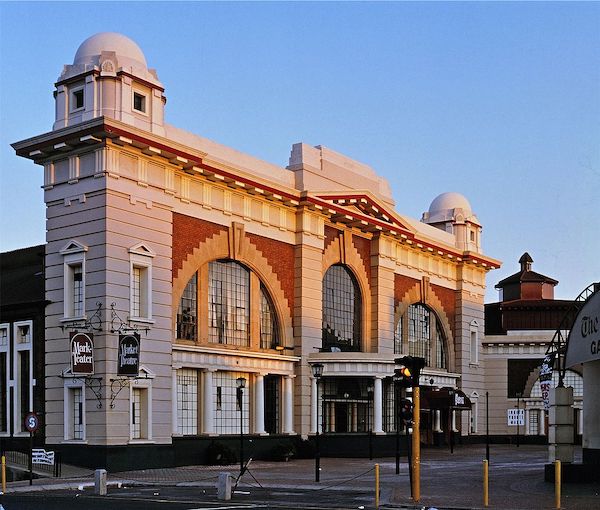 Johannesburg's Market Theatre © JanekSzymanowski (CC BY SA 30 via Wikimedia Commons)
Johannesburg's Market Theatre © JanekSzymanowski (CC BY SA 30 via Wikimedia Commons)
"We were the first theatre to move," Ngcobo said, in an interview, referring to an invitation he extended, just three days after the country moved into lockdown, to 45 artists to participate in dramatic monologues and solo performances aimed specifically at online audiences. These were drawn mainly from South Africa’s own oeuvre, and involved actors delivering monologues and acting out scenes from some of the country’s great plays from their own homes. Featured artists included Mncedisi Shabangu in the legendary play "Sizwe Banzi is Dead", directed by the acclaimed actor and director John Kani; and Dorothy Ann Gould as Hester in "Hello" and "Goodbye", both works written by the iconic playwright Athol Fugard.
Story time at the Market Theatre
This initiative was followed by another, Ditshomo Story Time, in which a mix of playwrights, actors, directors and choreographers, made new twenty-minute productions "filmed with high definitions cameras to create a real theatrical experience for viewers at home" as Ngcobo puts it. Ditshomo, story in the Sotho language, kicked off with choreographer and dancer Vincent Mantsoe’s dance piece titled "Cut", a production dealing with the themes of estrangement and confinement. It was a challenging exercise for the dancer, who is based in Paris, as he had to work remotely with Frank Pizon, a French videographer, and Mpho Molikeng, a musician and composer from Lesotho.
The Ditshomo season, six weeks-long, featured another dance piece, "Ithemba"/"Hope", by choreographer Smangaliso Ngwenya and dancer Thulisile Binda which explored the recurrences of past traumas; there also was a one-person production examining the plight of a foreigner caught up in a bureaucratic knot during a pandemic, "Elleloang", which featured Moliehi Makobane, written and directed by Napo Masheane.
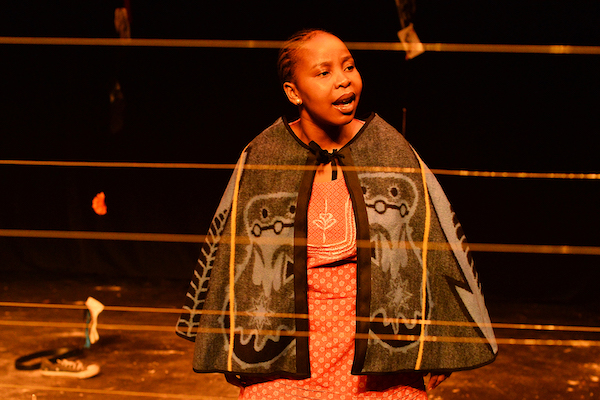 Moliehi Makobane contemplates being a foreigner in the production "Elleloang", written and directed by Napo Masheane.
Moliehi Makobane contemplates being a foreigner in the production "Elleloang", written and directed by Napo Masheane.
© Market Theatre
Also part of the season was "Ascend/ Descend", a dance collaboration between Thamsanqa Masoka and Musa Motha, which used the theme of a dinner as a dramatic prompt; the duo Anthony Coleman and Kate Tilley featured in Paul Slabolepsyz’s play "Endangered", a production which looked at the relationship of a couple going through a divorce. And completing the line-up was the production "The Table", a one-person play interrogating violence against women, written and directed by Bobby Rodwell, featuring the actor Faniswa Yisa.
Pandemic Findings: Theater should be hybrid and intimate
As frustrating as Covid 19 has been for theatre, Ngcobo explained, the pandemic has fast-tracked where theatre was always heading to in the future: "Where we are at now with how we program, we were heading there anyway." When they plan their programming, Ngcobo said, the Market now makes allowances for both online and onsite audiences. The director was keen to stress that migrating to the internet does not mean compromising the standards for which the Market Theatre is known.
Citing the example of a United Kingdom based artistic director he knows who was appointed to his position late in 2019 and who hasn’t had a season nor directed a play since the onset of the pandemic, Ngcobo insisted the plight of the Market Theatre was the same as that of other theatres in the world. "This is where future curation is headed. We are starting this journey with our audiences, and [we need] to persuade them that online work will never replace live theatre but is another space where they can watch theatre."
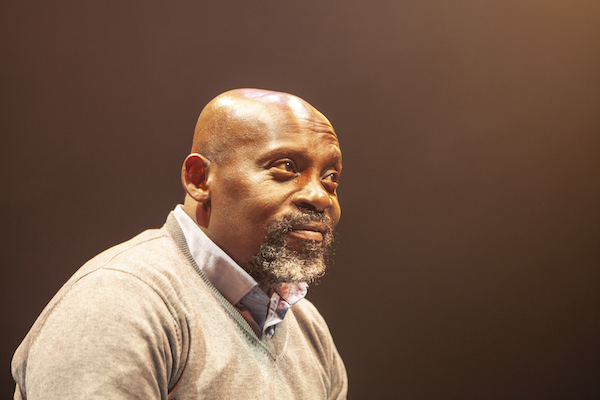 James Ngcobo, Artistic Director of the Market Theatre © Market Theatre
James Ngcobo, Artistic Director of the Market Theatre © Market Theatre
One of the lessons Ngcobo said he has learnt from Covid 19 is that the bigger the venues the more problems one is going to encounter. The Market Theatre complex itself has three auditoriums: the John Kani Theatre, which seats 387 people; the 120-seater Barney Simon Theatre, named for its co-founder; as well as the 155-seater Mannie Manim Theatre. In early 2021, Ngcobo speculated on the fate of venues on the West End, London, and wondered whether any of them will open anytime soon. "It won’t make figures sense." He meant that these big theatres had thrived on productions which rely on big numbers to make them economically viable. But, looking at one positive aspect of the pandemic, he said it will take us back to a time when theatres used to produce intimate work for small venues and small audiences.
State and city funding for theatres
The Market Theatre hasn't made money from its online programming, but the institution won’t suffer the fate of other independently-run venues in the city of Johannesburg which rely on patrons for their survival. The Market Theatre receives a majority of its funding from the government. In the last financial year, Ngcobo said, the Market Theatre was able to provide much needed paid work to 106 people who work across theatre. Theatre funding in South Africa comes from these three institutional sources: money either comes from the national government, local government, universities, or a space self-funds, as does the Fugard Theatre, in Cape Town. The theatre is set to close – a casualty of the pandemic. On 16 March, the theatre’s founder and benefactor Eric Abraham released a statement which, in part, read: "After a year of Covid closure it is with great regret and sadness that I have to confirm that The Fugard Theatre will close permanently with immediate effect. We are not persuaded that it will be Covid safe or financially to reopen as a theatre in the foreseeable future." The Market Theatre – together with the Playhouse in Durban; Artscape in Cape Town; Performing Arts Centre of the Free State (Pacofs) in Bloemfontein; and the State Theatre in the capital Pretoria – are government-funded institutions.
The city of Johannesburg, for instance, funds the following theatre spaces: Joburg Theatre in the central business district, Roodepoort Theatre in the west of the city and the Soweto Theatre in Soweto. The University of Cape Town runs and funds the Baxter Theatre as does the University of Witwatersrand, in Johannesburg, which owns and sustains the Wits Theatre. Even though the Market Theatre receives government funds for its day-to-day operations, it still does its own fund raising for certain projects and ventures.
Competing with the edutainment options at home
It's 45 years since the Market Theatre was founded and, as part of the commemoration of the milestone, the institution has come up with a program titled “Salute the Playwright” in which five new works will be shown this March. When he met the creators to commission the new productions, Ngcobo told them that these works don’t have to be about the pandemic. "We have two big responsibilities as story tellers, the one is to be in touch with the contemporary tapestry… [and] the second one is to help society escape the calamities that they are dealing with."
Then, speaking generally about the problem that theatre was encountering even before Covid 19, Ngcobo said, “audiences have always been fickle, but these days they are even more fickle, because they are sitting with a lot of options at their homes.” When he sits down with his team of producers, he always tells them, “We have to constantly ask ourselves one main question: why are we persuading people to leave all they have at home to come to the Market Theatre? What is it that we are pitching to them that we are confident that they don’t have in their homes?”
These are always tough questions for any artistic director, even without a pandemic. In the Market Theatre’s programming, the space seems to be continuing its old fighting tradition, but there is something else signaled in the institution’s hashtag #TheatreWillRiseAgain: hope.
 A member of the Academy of the Arts of the World, Cologne, a past judge of the Caine Prize for African Writing, and a Miles Morland Fellow, Percy Zvomuya is a writer and critic who has written for many publications, including Chimurenga, Mail & Guardian, Al Jazeera, New Frame, and the London Review of Books blog. He is also co-founder of The Con, a Johannesburg based writing collective.
A member of the Academy of the Arts of the World, Cologne, a past judge of the Caine Prize for African Writing, and a Miles Morland Fellow, Percy Zvomuya is a writer and critic who has written for many publications, including Chimurenga, Mail & Guardian, Al Jazeera, New Frame, and the London Review of Books blog. He is also co-founder of The Con, a Johannesburg based writing collective.
This article is part of a cooperation between the International Research College "Interweaving Performance Cultures" at Freie Universität Berlin (editors: Clara Molau, Antonija Cvitic) and nachtkritik.de (editor: Elena Philipp).
So far, Letters from Argentina, Chile, Egypt, and Uruguay (German only) have been published as part of the series.
![]()
Für Horizonterweiterung
Der Blick über den eigenen Tellerrand hinaus ist uns wichtig. Wir möchten auch in Zukunft über relevante Entwicklungen und Ereignisse in anderen Ländern schreiben. Unterstützen Sie unsere internationale Theaterberichterstattung.
meldungen >
- 25. April 2024 Staatsoperette Dresden: Matthias Reichwald wird Leitender Regisseur
- 24. April 2024 Deutscher Tanzpreis 2024 für Sasha Waltz
- 24. April 2024 O.E.-Hasse-Preis 2024 an Antonia Siems
- 23. April 2024 Darmstadt: Neuer Leiter für Schauspielsparte
- 22. April 2024 Weimar: Intendanz-Trio leitet ab 2025 das Nationaltheater
- 22. April 2024 Jens Harzer wechselt 2025 nach Berlin
- 21. April 2024 Grabbe-Förderpreis an Henriette Seier
- 17. April 2024 Autor und Regisseur René Pollesch in Berlin beigesetzt


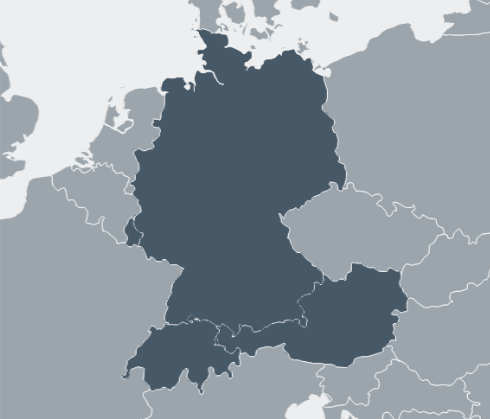
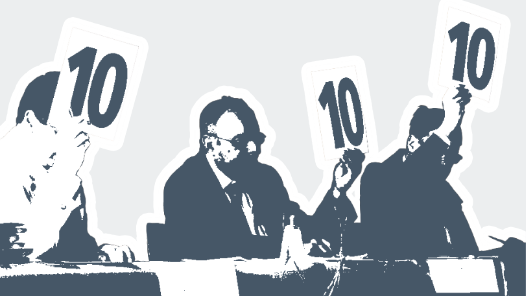
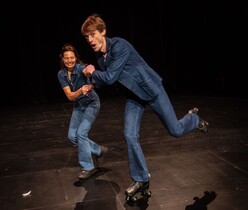



neueste kommentare >